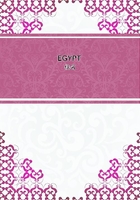
第54章
The guard who has brought us hither shouts in his Bedouin falsetto, in order to get the light switched on again, but the infinite thickness of the walls, instead of prolonging the vibrations, seems to deaden them; and besides, who could hear us, in the depths where we now are?
Then, groping in the absolute darkness, he makes his way up the sloping passage. The hurried patter of his sandals and the flapping of his burnous grow faint in the distance, and the cries that he continues to utter sound so smothered to us soon that we might ourselves be buried. And meanwhile we do not move. But how comes it that it is so hot amongst these mummies? It seems as if there were fires burning in some oven close by. And above all there is a want of air. Perhaps the corridors, after our passage, have contracted, as happens sometimes in the anguish of dreams. Perhaps the long fissure by which we have crawled hither, perhaps it has closed in upon us.
But at length the cries of alarm are heard and the light is turned on again. The three corpses have not profited by the unguarded moments to attempt any aggressive movement. Their positions, their expressions have not changed: the queen calm and beautiful as ever; the man eating still the corner of his rags to stifle the mad laughter of thirty-three centuries.
The Bedouin is now returned, breathless from his journey. He urges us to come to see the king before the electric light is again extinguished, and this time for good and all. Behold us now at the end of the hall, on the edge of a dark crypt, leaning over and peering within. It is a place oval in form, with a vault of a funereal black, relieved by frescoes, either white or of the colour of ashes. They represent, these frescoes, a whole new register of gods and demons, some slim and sheathed narrowly like mummies, others with big heads and big bellies like hippopotami. Placed on the ground and watched from above by all these figures is an enormous sarcophagus of stone, wide open; and in it we can distinguish vaguely the outline of a human body: the Pharaoh!
At least we should have liked to see him better. The necessary light is forthcoming at once: the Bedouin Grand Master of Ceremonies touches an electric button and a powerful lamp illumines the face of Amenophis, detailing with a clearness that almost frightens you the closed eyes, the grimacing countenance, and the whole of the sad mummy. This theatrical effect took us by surprise; we were not prepared for it.
He was buried in magnificence, but the pillagers have stripped him of everything, even of his beautiful breastplate of tortoiseshell, which came to him from a far-off Oriental country, and for many centuries now he has slept half naked on his rags. But his poor bouquet is there still--of mimosa, recognisable even now, and who will ever tell what pious or perhaps amorous hand it was that gathered these flowers for him more than three thousand years ago.
The heat is suffocating. The whole crushing mass of this mountain, of this block of limestone, into which we have crawled through relatively imperceptible holes, like white ants or larvae, seems to weigh upon our chest. And these figures too, inscribed on every side, and this mystery of the hieroglyphs and the symbols, cause a growing uneasiness. You are too near them, they seem too much the masters of the exits, these gods with their heads of falcon, ibis and jackal, who, on the walls, converse in a continual exalted pantomime. And then the feeling comes over you, that you are guilty of sacrilege standing there, before this open coffin, in this unwonted insolent light. The dolorous, blackish face, half eaten away, seems to ask for mercy:
"Yes, yes, my sepulchre has been violated and I am returning to dust.
But now that you have seen me, leave me, turn out that light, have pity on my nothingness."
In sooth, what a mockery! To have taken so many pains, to have adopted so many stratagems to hide his corpse; to have exhausted thousands of men in the hewing of this underground labyrinth, and to end thus, with his head in the glare of an electric lamp, to amuse whoever passes.
And out of pity--I think it was the poor bouquet of mimosa that awakened it--I say to the Bedouin: "Yes, put out the light, put it out--that is enough."
And then the darkness returns above the royal countenance, which is suddenly effaced in the sarcophagus. The phantom of the Pharaoh is vanished, as if replunged into the unfathomable past. The audience is over.
And we, who are able to escape from the horror of the hypogeum, reascend rapidly towards the sunshine of the living, we go to breathe the air again, the air to which we have still a right--for some few days longer.